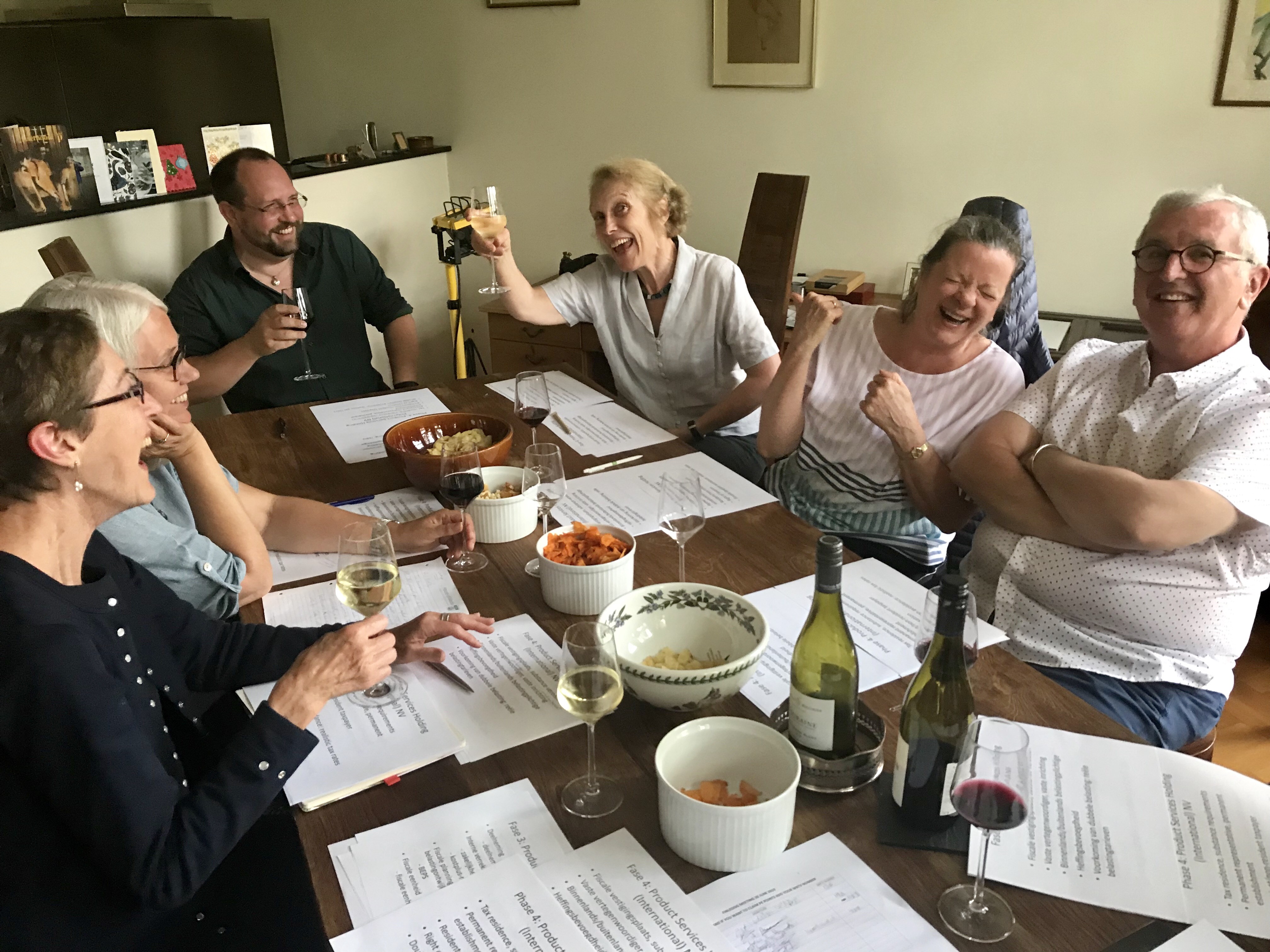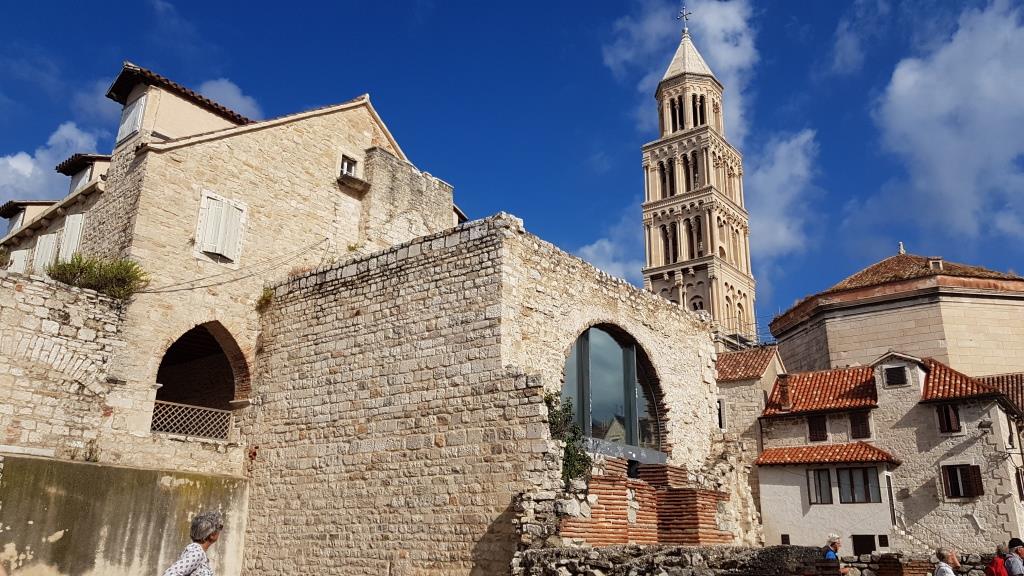
The MET Conferences have become a recurring autumn event in my calendar. A few years ago, when I was part of the organizing team for the first SENSE conference, held in 2015, fellow SENSE, MET and ITI member Joy Burrough-Boenisch suggested I might like to attend a MET conference. ‘It would be a fun experience’, she said, adding that I could find out first-hand what makes a good conference! So, in October 2016 I set off to Tarragona, south of Barcelona in Spain for my first METM. It was my first business trip abroad since becoming a freelance language professional. I’ve not missed a MET conference since.
As delegates must travel from far and wide to attend, MET does its utmost to keep costs down and ensure that their conference is affordable for all. The edition in Split, Croatia was no exception and this year even the workshops were not included in the conference price so delegates could really pick and choose. Needless to say, many of the pre-conference workshops were sold out within a few days, even the one I was giving on Word skills for translators and editors.
There is always something for everyone at a MET conference: workshops, plenary speakers, panel discussions and ‘regular’ presentations in two or three tracks. I like the pick-and-mix of a varied programme; within the comfort of the conference there are sessions to take you way outside your comfort zone. And it’s at these sessions I’m always pleasantly surprised by the gems of wisdom and tips that are there for me to grasp.
A METM would not be complete without the off-conference activities. There’s always drinks for early arrivals on the Wednesday evening and a social activity on Thursday morning before the workshops start. This year it was a guided tour of the splendid old town of Split comprising of the 4th Century Diocletian's Palace and historical centre, all of which is an amazing UNESCO world heritage site. And I should not forget to mention the off-MET meal groups, which are an excellent opportunity to get to know your fellow conference delegates. Because these are so popular, and the MET organizers only allow you to sign up for either Thursday evening or Friday lunch time, and I didn’t want to be without company for a meal, I volunteered to host a lunch – our topic for discussion was ‘Feedback is a two-way street’. The time passed by quickly and before we had exhausted the topic it was time to return to the conference venue.
MET conferences are an excellent opportunity for networking and while in Split I spent time with some of my SENSE colleagues who I hardly see in the Netherlands. It’s also a great time for meeting colleagues and making new friends from other countries and organizations. During the Saturday buffet lunch we had arranged to meet up with our sister-society committee colleagues from ITI, NEaT and of course MET. We had a productive ‘huddle’ and agreed to collaborate more closely, particularly to share our efforts and to establish a WhatsApp group to encourage sisterly communication!
There were three sessions at METM19 that I found particularly interesting. First, the workshop memoQ: the secrets of a flexible CAT tool revealed given by Juliet Macan. She set out to show us a path through the jungle of tools available to the translator and the myriad of features and settings in memoQ in particular. The combination of theory and practical exercises gave me the extra boost I needed to be confident about using memoQ more frequently.
Second, the session given by Maeva Cifuentes entitled Content marketing 101 for translators. Maeva has spoken on marketing at several conferences I’ve been to and because I have more work than I can cope with already, I’m not intending to start a blog to promote my own business, but I did want to hear what she had to say and now I have a little more understanding of what some of my clients want to achieve with their articles and blogs.
Besides the two keynote speakers, who this year were excellent, the third memorable session for me was that given almost at the end of the conference by SENSE and ITI colleague Lloyd Bingham on Translating pseudo-English. Now, this is something I come across every day in my Dutch texts and everywhere around me in the Netherlands. Thanks to Lloyd’s entertaining talk, I’m now more aware of pseudo-English and how to deal with it.
I came away from METM19 in Split with a post-conference buzz, with a high level of adrenaline generated by a few days of intensive networking and CPD absorption, and of course the wonderful weather and magnificent location. It’s an addictive feeling, partly fuelled by my desire to give something back to the professional organizations that have helped me develop as a freelance language professional – so it’s quite likely I’ll be attending, presenting and helping at future conferences, whichever society is the host.
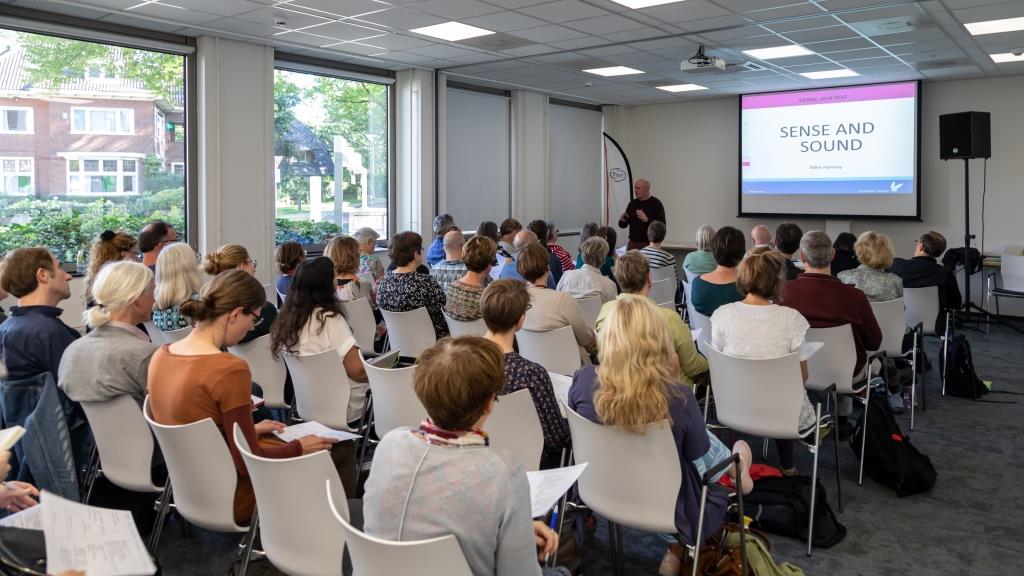
On 21 September, SENSE held its biennial Professional Development Day (PDD) for editors and translators. I was excited to be attending my first SENSE PDD! The two plenaries and four parallel sessions ensured there was something for everyone – editors, translators and copywriters alike.
After some coffee and networking, the day started with a plenary lecture by Jenny Zonneveld, who gave us a number of valuable tips on how to gain repeat clients: be an expert in your field, network, attend events, and build sound relationships. She warned us that this will require leaving our comfort zone, though!
Next, I attended a fascinating presentation by Dianna Beaufort on writing and translating in architecture and urban planning. Dianna guided us through some problems caused by ‘architecture and urban development speak’ or false friends. Translating een karakteristieke oppervlakte into ‘a characteristic surface’, for example, does not work!
Peter Smethurst presented the next talk I attended, titled ‘Translating for fun and profit’. He made us privy to his workflow and provided us with a number of useful tips: do not fill in more than 90% of your time, have the computer read the text to you when you are done (to check for errors), and prove to the client that you add value by pointing out mistakes and querying anything that is unclear.
After a traditional Dutch lunch that included kroketten and milk, it was back to business with a presentation on estimates: Jenny Zonneveld and John Linnegar urged us to take our entire workflow into account when preparing our quotes. We discussed the different ways in which we charge for time spent on admin and communication. John mentioned a handy word-count tool called PractiCount which helps editors and translators estimate how long their job will take.
Next up were Jackie Senior and Dr. Kate McIntyre, with a fascinating and hopeful presentation on the role of language professionals in academia. Higher education in the Netherlands is increasingly English-speaking, which creates many language needs. Language professionals in academic settings are not only providing editing services for grant proposals, journal articles, and dissertations, but also helping draft universities’ internal communications in English and teaching writing courses.
The final lecture was by Dr. Mike Hannay on flow, rhythm and balance in writing. He told us the key to writing that flows is variation. Good writing is attractive, clear and coherent, genre-faithful and accurate. He also discussed prosody and the study of rhythm, meter and intonation in poetry. Mike’s handout provided many examples of problematic copy, and it was great fun working through them with other language professionals.
The day ended with the announcement of the location of next year’s conference (which was delivered through a game of Hangman) and a lovely borrel (of course accompanied by bitterballen). This gave me the chance to finally meet some people I had interacted with only virtually, and to make some new friends. I am definitely looking forward to attending next year’s conference in Maastricht!
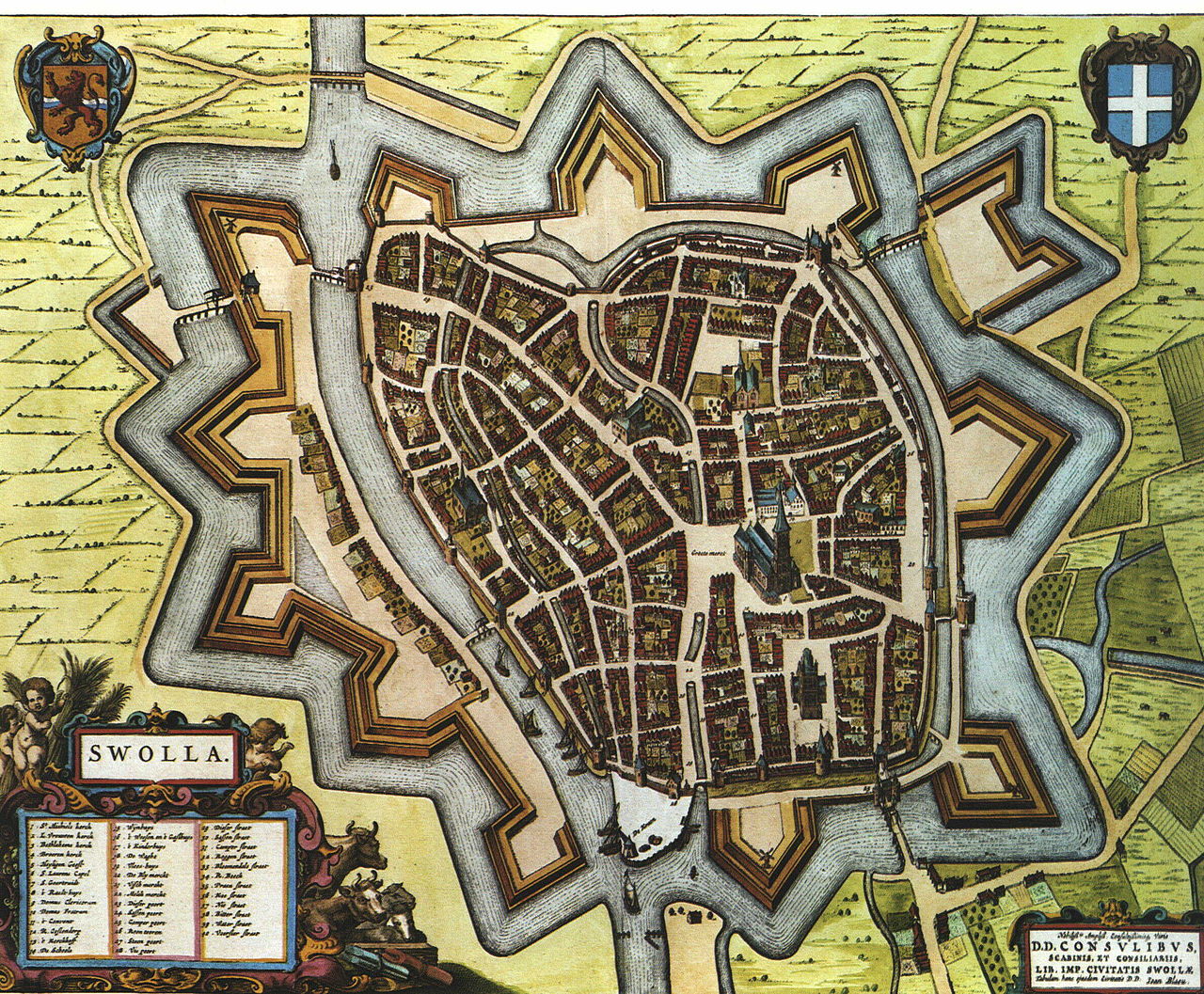
Historical map of Zwolle (from Wikipedia)
One drizzly afternoon in downtown Zwolle, Eastern SIG’s autumn borrel took place in the cosy confines of Winebar OAK. Billed as an informal ‘catch-up’, it wasn’t all-play-and-no-work that made this meeting such fun. We talked shop, of course, whilst tucking into plates of delicious snacks and knocking back (but not over) a glass or two of a somewhat tart yet surprisingly good Spanish red, ordered no doubt to train our palates for METM20 next year.
Among the tabled topics were ‘winding down working hours once you’ve hit retirement age’, and a perennial problem for zzp-ers: ‘chasing defaulters’. This reminded a superb storyteller of when she was a novice translator/feisty detective and tracked down the real home address of a con-man/client, whose letterhead stated ‘with offices in London, Paris and Emmeloord’ (she should have been warned) and, assisted by the Fraud Squad, managed to get paid. In full.
Talk of payments turned to the price of things in general, like the cost of booking a venue for a network of medical and science writers. Amsterdam Public Library, it seems, is conveniently close to Central Station and quite an affordable établissement when ten or so people turn up. Somewhere for SENSE to think about? This suggestion inspired a spate of word-perfect Français on the juste rewards of living and working in France (I think).
Dwelling on the good things in life brought us to the SENSE dinner, being held this year on the good ship Ooster-Schelde. Built in 1933 and originally a ferry for the Provincial Steamboat Services in Zeeland, the ship is moored in Zwolle, an understandably glad fact for local members who seem keen to welcome this SENSE event to their town. Despite its dozy reputation, Zwolle is anything but dull, not even in damp October, judging by my walk along the picaresque vesting and winding lanes to the venue. This peppy town has a long and glorious history, indeed a history so long its Golden Age (oops) predates the rest of the NL’s by a century at least. Take that, Hollanders!
But I digress. It seems that most of the eight or nine members present are coming to the dinner, most with partners in tow, and we’re eagerly looking forward to the chance to mingle with colleagues, talk shop and simply have fun chattering in English, just as we did at this social.

Co-working: does it make SENSE?
Have you heard of co-working? Did you know the concept has been around for 15 years? The thought of co-working may either excite or terrify you: excite you because of the prospect of getting out of the office once in a while and meeting your colleagues or other professionals to collaborate, om mee te denken. Or terrify you because you possibly became a freelancer to avoid interacting with anybody face to face.
What is co-working?
Co-working is essentially about doing what you already do, but with others, in person. On 11 October in Amersfoort, SENSE member Lloyd Bingham will outline the mental health benefits of having some company and a change of scenery. He will argue that co-working can increase your productivity, while offering a space to share knowledge and ideas with your contemporaries, which could ultimately produce a better result for your clients.
Co-working with fellow linguists or other professionals?
Lloyd will explain the differences between working with fellow language professionals and working with professionals in other sectors. Both models offer their own benefits, and one might be a better fit for you than the other.
Co-working or coworking?
Perhaps the most important question is: with or without a hyphen? Supporters of no-hyphen include the esteemed Garner’s Modern English Usage. Supporters of retaining the hyphen include many of our esteemed SENSE colleagues. We know who we’d rather trust.
We hope to see you in Amersfoort on 11 October, so you can find out whether co-working makes SENSE for you!
This Free Lecture is open to SENSE members only. Not a SENSE member yet? For a mere €40, you can benefit from SENSE membership for the remainder of 2019! Sign up for your Free Lecture ticket + discounted 2019 membership here.
SfEP 2019: Comedy, conversation, celebration
Written by Claire Bacon
Members of the SfEP Run On Group (photo by Kate Wright)
On 14 September, editors worldwide gathered in Birmingham for the 30th annual conference of the Society for Editors and Proofreaders (SfEP). Lured by the interesting programme and a desire to finally meet all those SfEP members I know so well on social media, I decided to join in the fun.
Feeling welcome
I immediately felt right at home. Within a few minutes I bumped into long-time member Helen Stevens, who was just as friendly and supportive in real life as she is online, introducing me to fellow academic editors and recommending my blog to others. First-time conference goers were invited for a welcome drink with the SfEP Council before dinner, which gave us the chance to break the ice (with the help of alcohol).
Free comedy
The opening lecture turned out to be a free comedy gig. Chris Brookmyre entertained us all with stories about his relationship with copyeditors, the perils of getting his work translated, and how readers are very good at telling you what’s wrong with your work (we enjoyed hearing a selection of his one-star reviews). Chris had warned us that he may have to resort to ‘infantile filth’ to make us laugh so early in the morning. He did his job well.
There were more laughs at the gala dinner. Rob Drummond talked about the relationship between linguistic knowledge and linguistic pedantry, explaining why language isn’t about right or wrong. So what about those annoying errors that bug you? Rob’s son has the answer: ‘Mate, let it go. It’s just nonstandard.’
SfEP director David Crystal closed the conference with a witty talk about the challenges his team faced getting the third edition of the Cambridge Encyclopaedia of the English Language published. The encyclopaedia needed fifty extra pages to incorporate massive linguistic changes and cultural differences – who knew a traffic light is called a robot in South Africa? We also enjoyed David’s hilarious parody of a Donald Trump speech: ‘make the SfEP great again!’
Professional development
Of course, there was also quite a bit of professional development on offer. The sessions tackled a variety of relevant topics and we all had problems choosing which sessions to attend.
To help our writers get their message across to the reader, we editors sometimes need to query things with the author. Knowing when to query can be tricky, so I was grateful to Gerard Hill for offering a workshop on The art of querying. He explained why querying may be necessary (omission, inconsistency and ambiguity) and how to handle notes and queries to the author (get the author on your side, be concise but thorough and keep your notes error-free). Gerard also provided a useful tool to help us decide what to do when we want to restyle something but aren’t sure why: check if it is wrong. If it is, then decide whether to silently correct or amend but flag. If it may be wrong, then decide whether to let it stand, query, or query and suggest an alternative.
Learning new things
I decided to dip my academic toes into the world of fiction editing at Louise Harnby’s seminar on Switching to fiction editing. (To be honest, I was a bit star-struck. I couldn’t resist seeing Louise in action – her resources for editors have helped me immensely.) Louise told us what to look out for when editing fiction. Some of these points were specific to fiction, like keeping an eye on the narrative viewpoint so that the plot and chronology run smoothly. Others also crop up a lot in academic writing: unnecessary adverbs, needless repetition and endless description. Louise also generously gave all attendees free access to her new online course Switching to fiction editing. Thanks, Louise!
Marketing tips: be engaging
Effective marketing is important for every business. I’ve been dabbling in content marketing for a few years and was looking for ways to make my strategies more effective. Cathy Wassells explained how to use social media to market your business. Take-home messages were to post different types of content in your posts and to keep them engaging and personal – videos and selfies are particularly effective (time to leave my comfort zone, it seems). To increase engagement, Cathy also recommended posting content when your clients are online.
Training
Have you ever thought about offering training – maybe to your clients, or to other editors? Hilary Cadman has developed online training courses for editors and shared her experiences in her workshop. She told us about teaching platforms that didn’t work for her (OptimizePress) and those that did (Teachable). She also showed us how easy it is to make a short screencast and explained how to do it right: keep it short, talk slowly and invest in a decent microphone and software. Her helpful workshop made developing an online course seem doable.
Keep on running
Conferences can be pretty overwhelming, so I was happy to escape the conference centre for an early morning run with the SfEP Run On Group – a lovely group of editors who like to run. Some of us run for miles every day, while others are happy with a short jog every now and again. Anyone interested in joining the group can check us out on Facebook where we discuss all things related to running. It was great to finally get together in person for a run – thank you Cathy Tingle and Shannon Humberstone for organizing it.
A toast to the SfEP
There was also stuff to celebrate. Chair Sabine Citron announced at the welcome address that the SfEP is now a chartered institute, thanks to the initiative of Gerard Hill who convinced the SfEP council to make a bid for chartership back in 2016. There were standing ovations for Sabine and Gerard at the gala dinner – and rightly so, as chartered status will raise the professional status of copyeditors and proofreaders all over the world.
Closing time
All good things must come to an end. The conference closed with a raffle (where I won Louise Harnby’s online Blogging for Business Growth course – as if the conference wasn’t brilliant enough already!) and we all said our goodbyes.
I am often struck by how supportive the editing community is. I left academia five years ago and now I have an editing business that I am very proud of. But I would not be here without the support and guidance of my colleagues from SENSE and the SfEP. To all those lovely editors: you are my people.

On 6 September, 11 SENSE members attended the freestyle UniSIG meeting at which attendees introduced the topics. The wide range of topics included those listed below.
WOinActie (https://woinactie.blogspot.com)
Mention of this movement defending the interests of university education led into a broader discussion about the cuts to university funding that fuelled the ‘red felt squares’ protests by academics at the start of the academic year.
University language centres and their influence on our work
Language centres are also providers of work but do not always pay good rates. Since they are now often independent services rather than part of a university, we wondered how they manage to avoid charging BTW for their internal (university) clients. Here the point was also raised about the need for the editor/translator to have direct contact with the client/author and how third parties and agencies discourage or do not permit this.
Indemnity insurance
Most attendees did not have such insurance, but one said it gave her peace of mind; several said that clients required them to have it. An indicative price of about €600 per annum was mentioned.
Expected rates for someone embarking on a career as a translator but working mainly for agencies
These are generally rather low, but it takes time to find your way and acquire independent clients.
The editor’s role as a teacher
Most editors of academic texts consider at least part of their role to include acting as a writing coach, pointing out mistakes made in style, terminology and grammar, and even content for those who are also subject experts.
The pros and cons of taking on pro bono assignments
These can sometimes lead to a fee-paying client, but it is often a case of being caught in the moment and just saying yes to such work! We agreed you often do not know what you’re getting into at the start of such projects, so the advice is to clarify as much as possible.
Using academia.eu and researchgate.net (see also https://en.wikipedia.org/wiki/Academia.edu and https://en.wikipedia.org/wiki/ResearchGate) to keep abreast of relevant research (eg on editing student texts)
Once you’ve registered and indicated your interests, you can search for papers and chapters and upload any of your own work to share with the community. Both sites will also suggest literature on topics that could be relevant to you. The documents can be downloaded from links on their websites, or the author(s) can be contacted via the form the website provides. For ResearchGate, you need to register with an institutional email address.
Whether students benefit more from courses that are based on writing across the curriculum or from courses focusing on writing within a discipline
Over half of the attendees also teach academic or science writing. There was no consensus as to what type of course is more effective, as much depends on factors such as group size and students’ linguistic, cultural and disciplinary backgrounds. A biomedical editor suggested consulting the guidelines on science publishing practice and writing available on the British Medical Journal (BMJ) and Clinical Orthopaedics and Related Research (CORR) websites. See https://www.bmj.com/about-bmj/resources-authors and http://tools.clinorthop.org/author-guidelines
SENSE Guidelines for Proofreading Student Texts
Are they being circulated and referred to? Why is the ethics of editing student texts not a hot topic in Dutch academia? We concluded, regretfully, that there is little interest among academics here.
Plans to revamp language teaching in Dutch schools, so that pupils are made more aware of the power of language for expressing ideas and are better equipped to express themselves in writing when they reach university
Dutch schools have so far not placed much emphasis on learning to write well. New approaches are on the horizon.
Our meeting was held in a room on the first floor of Restaurant Se7en in Utrecht. The facilities were not as modern as those of Park Plaza, but the general opinion was that this is a convenient and pleasant venue for meetings and serves good and reasonably priced food. Unfortunately, it does not have a lift.
21 September: Professional Development Day!
Written by Ashley Cowles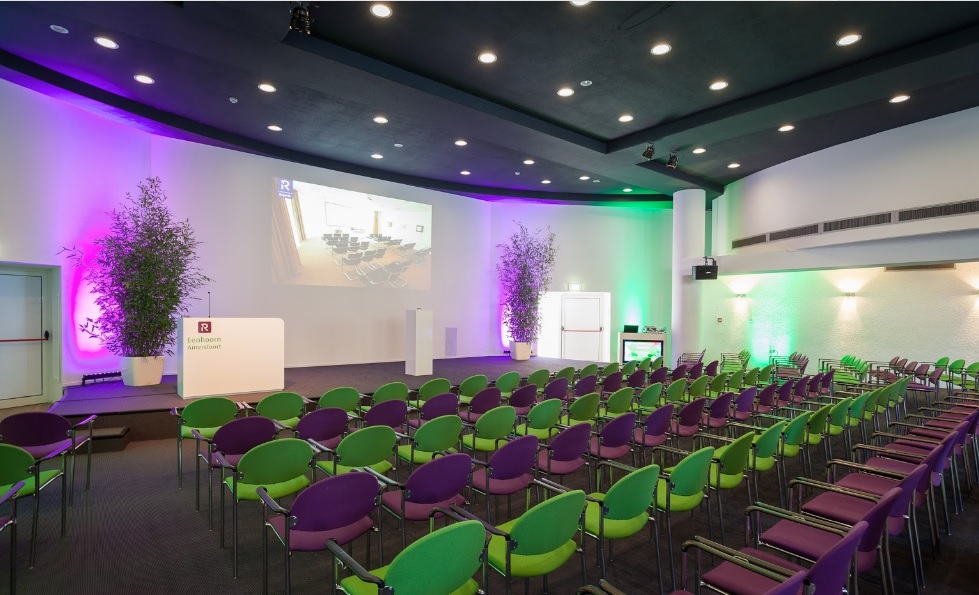
It’s almost time for our biennial Professional Development Day! Join us in Amersfoort on Saturday 21 September for a full day of interactive learning. This year's programme will include two great plenary talks as well as presentations by some of the society's best translators, copywriters and editors. Attendance at the SENSE PDD will entitle you to 5.75 PE points.
Talks to watch include Anita van Adelsbergen’s presentation on Cornish history, culture and languages, which will dive into how much influence the Cornish have had worldwide. For example, did you know the American state of Pennsylvania was named after a Cornish family?
If you’ve been thinking about taking up copywriting, be sure to attend Cathy Scott’s talk. After walking you through the basics of copywriting, she’ll discuss different approaches for different media, talk about how to attract clients, and leave you with some useful tips for background reading.
It’s not all sitting back and listening, though. Mike Hannay’s interactive plenary about the importance of rhythm and flow when writing will involve quite a bit of audience participation! If you have an example of a particularly well-flowing text – or the exact opposite – be sure to bring it along.
Of course, the programme will allow you plenty of time to catch up with other members and compare notes on different break-out sessions, either during the buffet lunch or over drinks and nibbles after the official part of the PDD concludes. Be sure to stay until the closing session for your chance to win some interesting prizes during our very first SENSE raffle!
For more information about the programme and speakers, take a look at the website. Early bird tickets are available until 31 August, so be sure to register in time!
Can’t make the PDD? SENSE will be offering several other CPD opportunities over the coming months, including a free lecture on co-working by Lloyd Bingham and a tax workshop to help you get all your financial affairs in order by year-end. Stay tuned for more!
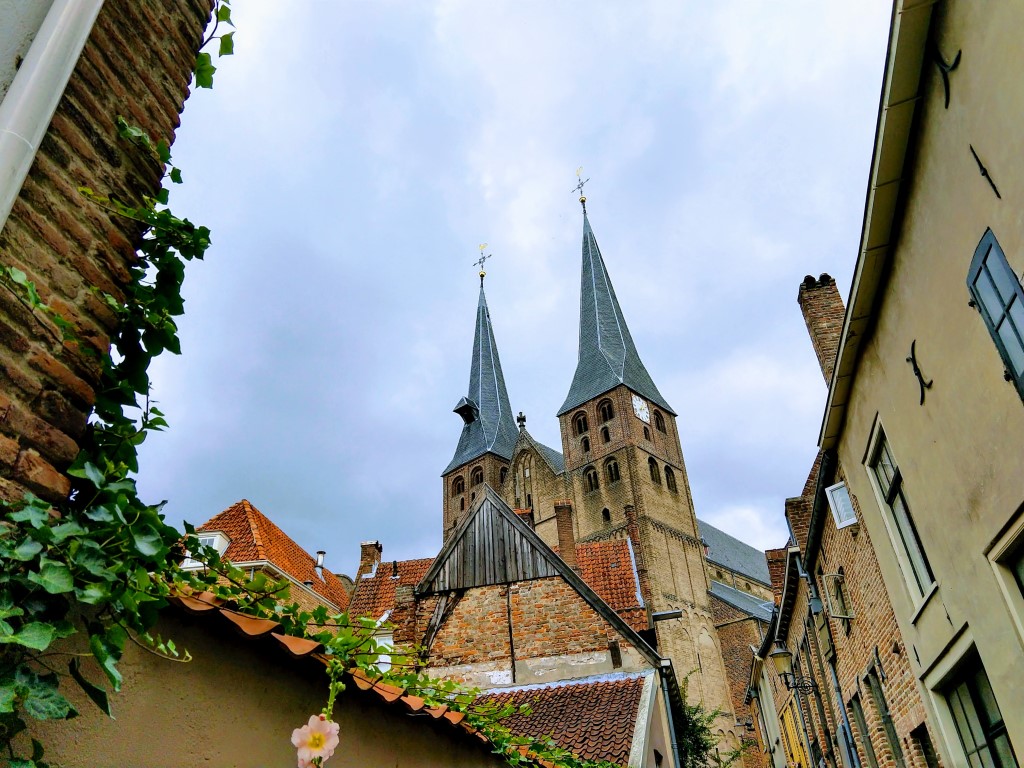
On Sunday 14 July, a group of nearly 40 SENSE members met in lovely Deventer for an afternoon of leisurely fun. We started with a guided walk around the historic Bergkwartier. Over the course of an hour, two knowledgeable guides showed us some of the city’s centuries-old sights (did you know Deventer is over 1,250 years old?) as well as its more modern gezelligheid. One of them even switched to English to accommodate us – very thoughtful!
We ended the tour back at our starting point, then split into groups for the other afternoon activities: a Brain Art Workshop at Atelier ARToMoNDo, a beer tasting at local brewery and taplokaal Davo or a look at the Charles Dickens Kabinet.
The ARToMoNDo group was welcomed by Marianne de Bakker, who explained that people use both hemispheres of the brain to draw. The left and right hemispheres control different functions: the left half is for rational activities like language and reasoning, as well as maths and science, while the right half controls art awareness, creativity, intuition and insight. Marianne showed the group a fun way to access their artistic and creative abilities, by not looking at the paper as they were drawing. One attendee said: ‘The hardest part for me was to remember which bits I had already drawn and – when I had taken the charcoal off the paper – where to start drawing again! So one of my subjects ended up without any hair!’
The beer tasting took place at Davo’s own proeflokaal, located in an old factory. The café was buzzing with activity, and the beer garden in the back was nearly full. Clearly, this is the place to be for Deventer beer lovers! Attendees were shown into a private room, where one of the brewers told them all about how to brew different kinds of beers. The tasting involved three different beers: their most popular ale, a dark beer that was a cross-over between a double and a stout, and a tripel that was deceptively doordrinkbaar. He also shared the story behind their brand, talked about the challenges of scaling up and offered a sneak peek of what the future will bring. After a quick tour of the actual brewing facility just across from the bar area, it was time to head to De Fermerie for drinks and nibbles. Several of the attendees made a detour past the gift shop on their way out…
The Dickens group was big and had to be split in two, with one half being guided through the Dickens Kabinet on the ground floor, being fed titbits of gossip and fun facts. One British attendee said, ‘any snobbish feelings of “What the dickens are these Dutch people doing with our author?” disappeared immediately’ at the sight of the pure enormity of the collection and at the knowledgeability of their guide. The other half went upstairs to be charmed by Emmy Strik, who led them around her enormous collection of costumes – some custom-made, others rescued from imminent destruction, some made by the townspeople who wear them to the annual Dickens Festijn. One member said: ‘It really wasn’t my thing, any of it, and yet it was! Loved it!’
Once the breakout activities were concluded, everyone met up at café De Fermerie, where SENSE picked up the tab for the first round of drinks. We had the whole space to ourselves, which made for easy conversation and plenty of seating opportunity. Attendees swapped stories about their chosen afternoon activities over a drink or two, as the owner made the rounds with several types of tasty vegetarian borrelhapjes. All in all, a great way to welcome summer!
Nine of us gathered at John Alexander’s place in Amsterdam for an excellent sparring session over a glass of wine. I don’t think I’ve ever had so much fun discussing taxes!
Rob Bradley took the title of his presentation from Jean Baptiste Colbert, a French Minister of Finance under Louis XIV, who said that ‘the art of taxation consists in so plucking the goose as to obtain the largest amount of feathers with the least amount of hissing.’
Rob described what it’s like working in this market niche:
Challenges
- Tax legislation is constantly changing, which means you always check and take nothing for granted.
- The Dutch names for specific taxes often don’t accurately describe what they are. Kapitaalbelasting, for example, is not capital tax. Fiscaal almost never translates into ‘fiscal’ (except in ‘fiscal unity’). So translate tax names literally at your peril!
- There are no official translations, so you need to choose a translation yourself that makes clear what the tax actually is or does. It’s good to picture your reader as a Japanese CFO.
Perks
- Good rates. Specialist translators are few, and the lawyers themselves earn such high fees that clients are not likely to complain about your bill.
- Steady income: no matter what stage of the business cycle, tax and tax-related translations will always keep coming.
- ‘The juicy bits’. Tax documents are about real businesses, and you’re likely at some point to encounter drama like bankruptcy, fraud or hostile takeovers.
We then discussed Rob’s handout (content available to SENSE members only), which followed a hypothetical company as it grows and starts to form a group – first domestically, then internationally. After that, we talked about what facilities and arrangements the company can use to optimize its tax situation, and how it interacts with the tax authorities. The handout provided attendees with Dutch and English terminology relevant to each stage in the company’s development.
Rob explained the many finer points brilliantly, like the difference between a vrijstelling and an aftrekpost, or between loonbelasting and loonheffing. He also explained base erosion and profit shifting (BEPS) and the arm’s length principle.
Rob helped us understand how tax rulings used to work: the national government and the company negotiated the total tax bill the company would have to pay. Today, the company and its tax lawyers propose a specific corporate structure, and the country’s tax authorities provide advance certainty on its tax treatment. A ruling is far more tightly controlled and above board. Its validity is limited to four years. During that time, changes in legislation can override agreements in the ruling.
There was a lively discussion on the shift in public opinion on tax planning by companies. In just a few years, this has gone from ‘smart’ to ‘immoral’. Then and now, the object of tax planning is 100% legal tax avoidance, rather than illegal tax evasion. Let’s face it, none of us want to pay any more than we have to, whether we’re multinationals or freelancers! Though as one member remarked, it is some consolation to see your tax money relatively well-spent, as it is in the Netherlands.
One member said: ‘I thought the speaker was very knowledgeable and I will certainly use his handout in future as a reference. His understanding of his field and his craft are impressive.’
We wrapped up with a big thank-you for Rob and our host and convener John. Alison Gibbs has offered to present at our next meeting after the summer. Topics buzzed round, but she’ll let us know nearer the date. Watch this space!
For further reading, see the International Financing Reporting Standards (IFRS) as adopted by the EU (multilingual display optional). Individual language versions of more recent IFRSs are also available in English and in Dutch.

It was a fairly early start in Zwolle for the Eastern SIG meeting, but fortunately there was a Nespresso machine to help us wake up. The topic of the meeting was ‘levels of editing’, an idea that had arisen from a discussion at a previous meeting where Sally and Kumar had mentioned how different their editing styles are. Before the meeting, Kumar and Sally both edited a 300-word text (taken from a medical journal, though not too specialized). The text was also sent around beforehand, so that other members could have a try too.
The intention was that Sally and Kumar would compare their edits at the meeting and discuss them with the other SENSE members present. Why would you choose whether or not to change something? Are the changes justified? Unfortunately, Kumar had to leave almost immediately, but Sally was so well-prepared that this was no problem at all! For each sentence, we compared and discussed the changes that the two of them had made and compared them with our own edits − it was very interesting to hear the different approaches taken. We also discussed the assumptions that we made when editing the text, some of which were not always correct! (As also discussed in this thread on the members-only forum.)
Besides discussing the actual edits made, we also talked about what the editor’s job should/could be, and how this depends on the time available. We then went on to talk about client acquisition and contact with clients.
All in all, a highly informative and certainly well-attended morning!
